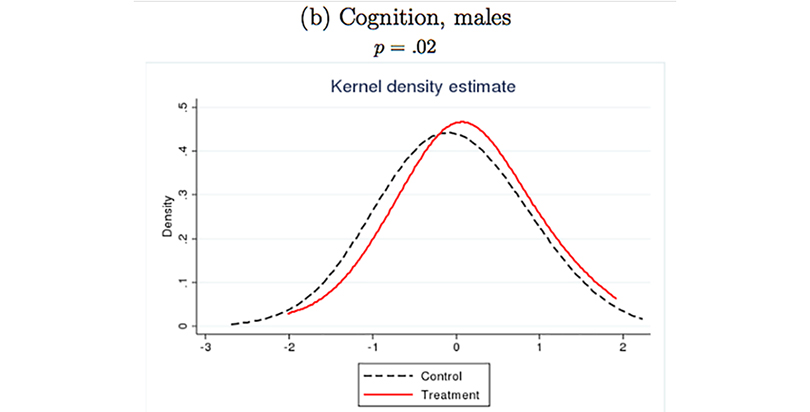Nobel Winner’s Research Shows Home Nurse Visits for New Moms Boost Children’s Cognitive Skills

Heckman’s research focuses on one of the first implementations of the Nurse-Family Partnership, a home visitation program that brings registered professional nurses into the homes of women during their first pregnancy. NFP has grown into one of the widest-reaching efforts of its kind — it served nearly 20,000 families in 2015, according to the National Home Visiting Resource Center — but it was just getting started in 1990, when 1,138 women enrolled in a trial in Memphis. The expectant mothers were overwhelmingly likely to be low-income (95 percent), unmarried (97 percent), and under the age of 18 (64 percent); all entered the trial no later than 29 weeks into their pregnancies.
Demographic figures like that make the results of the study even more remarkable. After a series of home visits stretching from pregnancy to the baby’s second birthday, data indicated that mental health and parenting attitudes in the homes of NFP participants were improved; that boys and girls both saw enhanced cognitive skills by age 6 relative to the control group; and that boys retained those benefits at age 12.
“These treatment effects arise from program-induced improvements in maternal traits and early-life family investments at age 2,” Heckman writes, pointing to reductions in maternal anxiety and depression as well as increased verbal and emotional responsiveness to newborns. “The treatment effects for males persist through age 12, but they do not persist for girls. Treated males outperform controls on a range of achievement scores. We find that 40% to 60% of male treatment effects at age 12 can be explained by enhanced cognitive skills measured at age 6.”
A range of assessments were used to measure cognitive and socio-emotional development, including the Kaufman Assessment Battery for Children (KABC) and Peabody Picture Vocabulary Test (PPVT), each conducted with 6-year-olds, and the Tennessee Comprehensive Achievement Test (TCAT), which measured math and reading scores at age 12.
Release of the study comes at a fraught period. NFP receives some of its backing from the Maternal, Infant, and Early Childhood Home Visiting initiative, an Obama-era funding mechanism that is set to expire in September. Expansion of MIECHV was considered a major plank of Hillary Clinton’s early-childhood-education platform, and with the election of Donald Trump, the initiative’s advocates are waging a furious campaign to prevent its dissolution.
(The 74: Inside Hillary Clinton’s Latest Push to Improve Early Childhood Education: Home Visits)
Heckman, whose career has largely focused on the study of human capital development, considers the study evidence of the potential impact of prenatal and early-childhood programs in improving later-life outcomes for at-risk kids. The findings suggest that “early childhood interventions that start before birth have the potential to affect cognitive skill formation for which sensitive periods occur in utero and in the first years of life,” he writes.
Get stories like these delivered straight to your inbox. Sign up for The 74 Newsletter

;)
